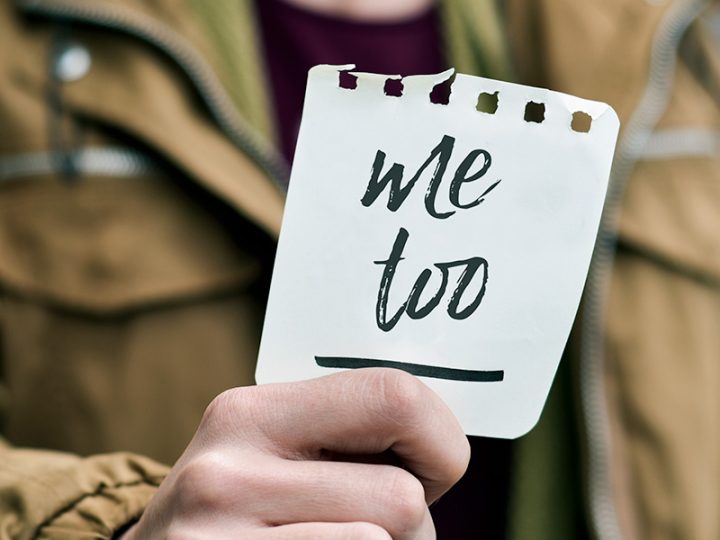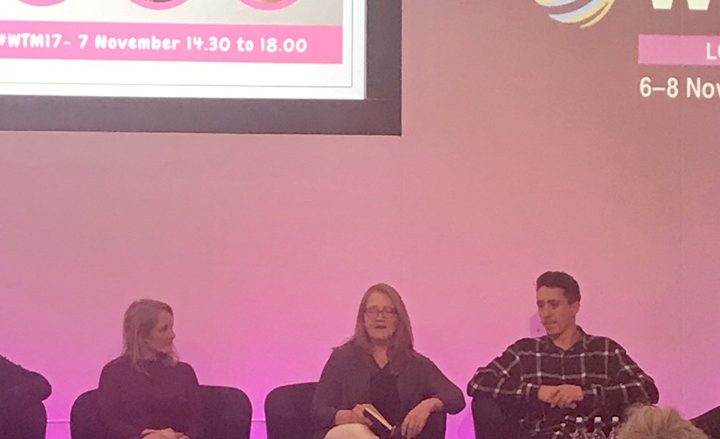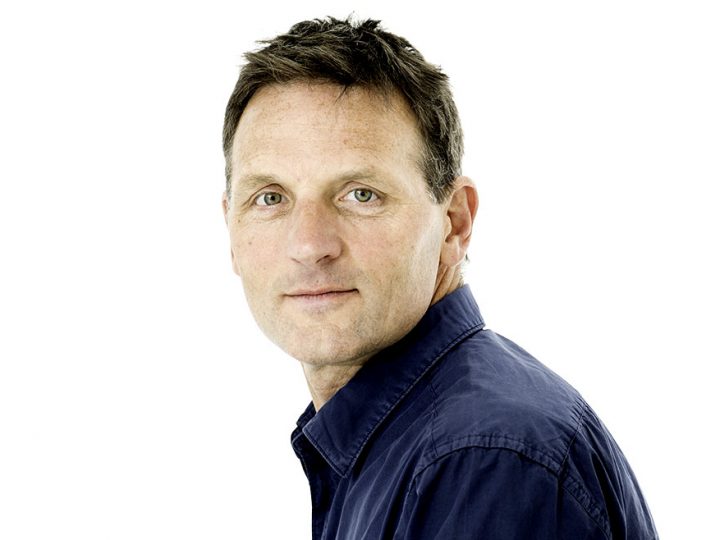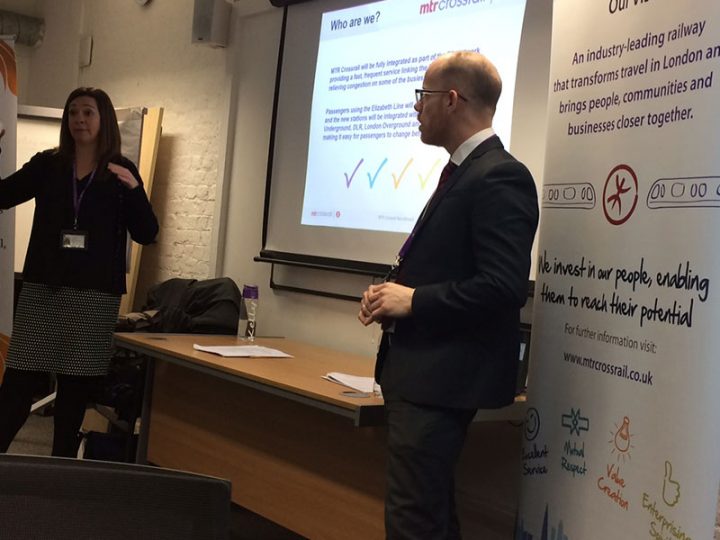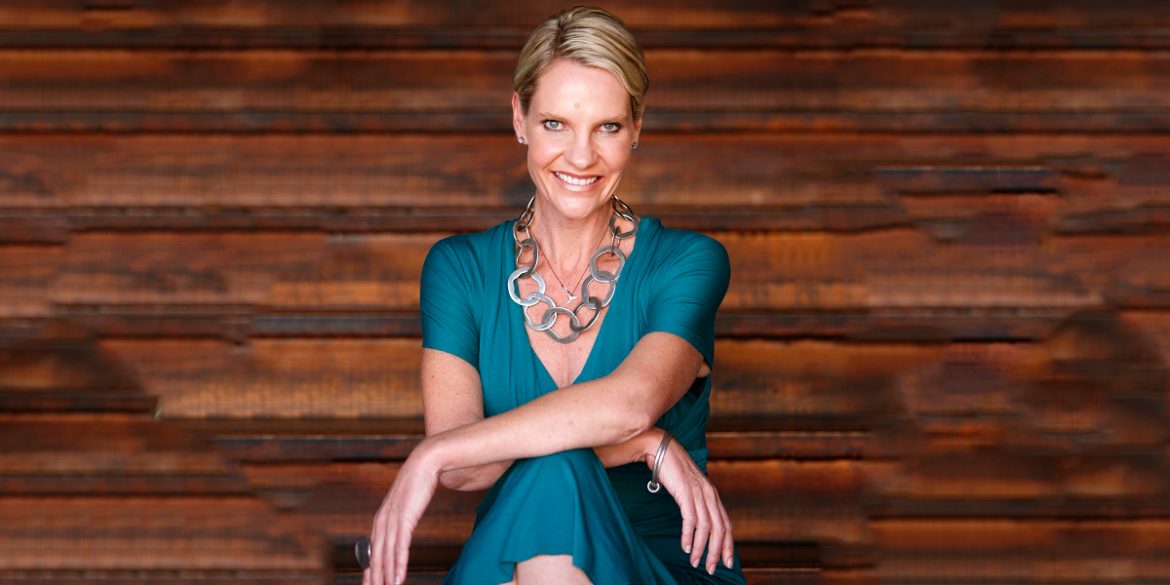
It is my pleasure to interview Barbara (Bobby) Stewart
Executive Manager: Strategic Relations and Human Resources, V&A Waterfront
Bobby acted as mentor at the recent Women in Travel meetup in Cape Town and here she shares her thoughts around women, mentoring, leadership and the Travel & Tourism industry.
Tell us about your career to date and what it is that you do (and love) about working at the V&A Waterfront.
I started my career in the legal profession and was later asked to join a client in the offshore diamond industry, which became my real university. I was asked to start up the HR Department and worked as the key advisor and strategist to the CEO. I was there for nearly 10 years and was eventually made a Director and was the first woman to sit on the Namibian Diamond Mining Council. I recall the then President of Namibia, asking me to take the tea order and the minutes. I was deeply offended! My CEO advised me to “let them underestimate you, you will be amazed at what information they will give you when they think you don’t have brain cells!” He was right. I then started my own consultancy and worked with an incredibly diverse range of clients, from mining companies, to SWEAT (also for close on a decade). It was here that I started to realise that much of what I was attempting to implement to help organisations shift was simply not achieving the results I was seeking and I started a deep and profound journey into understanding why that was.
However, it’s at the V&A Waterfront, under the leadership of David Green, who innately understood what I meant by Conscious / Values Based Leadership, where I have been able to really explore some of the ideas I have been developing over these years – particularly about women in leadership.
The V&A is a special place and a South African success story in itself, and I believe this is very much down to its leadership team who are visionary, brave, bold and audacious and have embraced this work.
In a nutshell – most business environments have evolved into an extension of a schooling system, with one small detail missing – there are no children, just adults. Adults are the CEO’s of their own lives and yet are most often treated as misguided children who need strict parenting and fierce discipline in order to pass the grade.
The fundamental principle that informs our leadership work is field of the Neuroscience of the Brain and Leadership. When you truly understand how the brain functions under fear, shame or stress, it is then patently obvious that we need to manage and lead in a different way or you will certainly create systems and policies and procedures which perpetuate primitive thinking and behaviour which is the antithesis of what you are ultimately wanting to achieve. Most management, HR and Employment Law practices do exactly this.
At the V&A Waterfront, we are passionate about creating an adult organisation, with leadership styles that encourage collective intelligence, self-development and awareness. We believe this best supports executive thinking and decision making, which ultimately results in a more accountable, innovative and inspired organisation.
We have a purpose that drives our business – that of creating the best waterfront in the world, one that Capetonians are proud of, and one which is an integral part of the City of Cape Town and a national jewel.
You have some strong views and beliefs about women in leadership – can you explain your thoughts on this?
I do. My experience through the years has been (with a few exceptions!) that men have not been my greatest adversaries, but in fact it has been women. It is often women who conspire against women and seek their failure.
For many years, I bought into Superwoman myth and perpetuated it to my absolute detriment. I call it “The myth of perfection perpetuated by the sisterhood ©”. I had had enough of pretending that this worked for me and how it made other women who looked up to me feel.
Many people believe that for women to be successful they need to act like men, but I believe the opposite holds true. When women are taught to embrace their vulnerability and authenticity in the workplace without fear or shame, something powerful emerges. They are so much stronger and bring a real value to the workplace, and this is when a true equal-gender environment is allowed to develop.
With the women stepping into their vulnerability, their male colleagues start stepping into theirs (tentatively at first) and with this comes empathy and a safer environment for everyone, not to mention a lot less chest thumping from both sides in the boardroom! It creates an environment that is supportive and richer in its exploration of the subject matter at hand, rather than the vile pontification and projection of ego in the dire need to be right at all costs.
What changes do you think need to be made in most workplaces in order for them to really embrace gender parity? And why?
As I have outlined above, my view is that many businesses, albeit successful ones from an external perspective, run along very patriarchal, punitive and archaic models, utterly irrelevant in this day and age.
At the V&A Waterfront, we have developed a way of working that understands that everyone is different, has different challenges and life just doesn’t run along a straight anticipated line. We accommodate and support our staff and ourselves. The notion that there is one rule or procedure that has to be abided by at all costs, in my view, is frankly nonsense! We want to watch that tennis game. Kids get sick, we get sick. There are times when life is just incredibly hard and overwhelming. Gender parity starts quite simply with a deep regard for humanity in the workplace and for each individual’s situation, need and circumstance. The result? Incredibly high employee engagement and discretionary effort. Minimal unfair discrimination and a drastic down turn in misconduct and poor performance.
When a business understands this, and undertakes a journey of self-awareness and self-discovery both in itself, and with its people, it is able to build a culture which is centred around being human and create a balanced team made up of different skills. This approach – instead of a patriarchal or one-size-fits-all attempt – allows a collective intelligence to develop, and one which is able to innovatively and creatively problem solve.
As a successful woman in business and in a leadership position, what is your advice for other women starting out in their careers?
Be yourself. Understand yourself. It sounds trite and overused, but there is a real value in understanding this. Don’t try to out-man your male/female colleagues, and use your own background, experience, skills and passions to develop your own persona to bring to a business. It is that which makes you powerful.
What have you learned from the WTM Africa Women in Travel event?
I believe there is a tremendous opportunity and need in the sector for mentorship as a very powerful way in which to give these women the support and guidance they are seeking. I saw this during my mentorship sessions at WTM – the sharing and seeking of solutions was a primary focus for many of these sessions. So often, those in leadership positions are men – if we can find more ways, as women, to share and support each other, and mentor those coming up through the ranks, I believe that it can only benefit the industry as a whole.
What are your key takeaways?
The main thing that struck me was the incredible wealth of wisdom and dynamism among many of the women that attended the event. Many expressed a deep need to share experiences and challenges amongst themselves and other women in the travel sector. Again, the more ways we can find to share experiences and knowledge, the more that everyone (including men, I believe) will grow.

